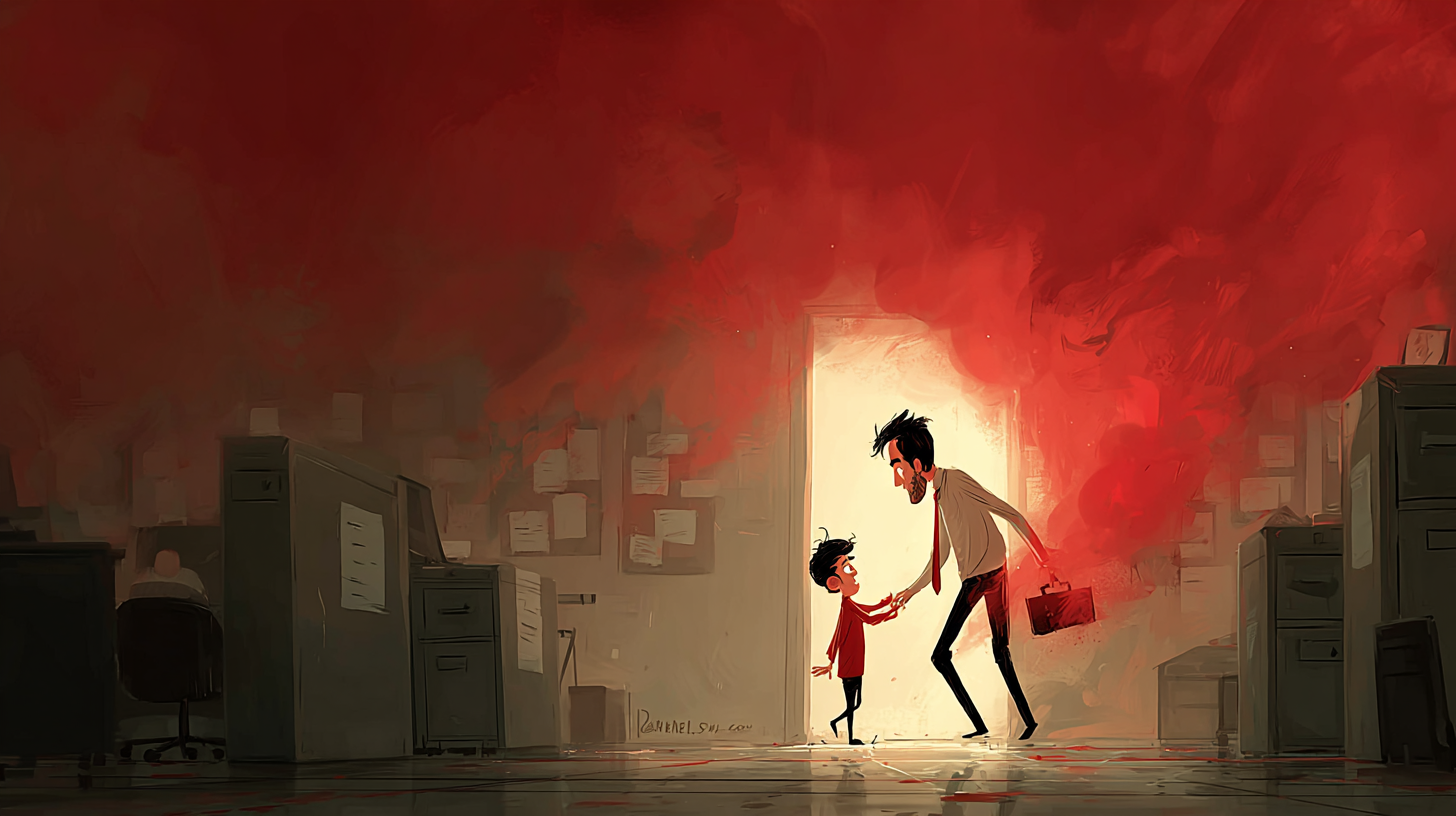A hero is someone brave and respected, or the main person in a story.
heroは「勇気があって人々に尊敬される人」や「物語の主人公」を意味します。
以下は英単語 “hero” に関するストーリー型学習コンテンツです。まずは大枠の意味を理解して最後の文章で確認しましょう。
主な意味(main meaning)
| 品詞 | 発音記号 | 意味 | 英語例文 |
|---|---|---|---|
| 名詞 | /ˈhɪə.roʊ/ | 勇気や力で人々に尊敬される人、主人公 | The firefighter was a hero who saved many lives. |
| 名詞 | /ˈhɪə.roʊ/ | 物語や映画の主人公 | The hero of the story is a young boy with a big dream. |
語源(etymology)
ラテン語 “heros”(英雄、守護者)から、さらに ギリシャ語 “hērōs”(神に近い存在)に由来。
核となるイメージは「特別な勇気を持ち、人々を守る存在」。
類義語(synonyms)
| 類義語 | 例文 |
|---|---|
| champion | She became a champion of children’s rights. |
| savior | The doctor was seen as a savior by the village people. |
| idol | The singer is an idol for many teenagers. |
| leader | The leader inspired his team to keep going. |
| legend | He is a legend in the world of sports. |
反義語(antonyms)
| 反義語 | 例文 |
|---|---|
| villain | The villain in the movie tried to destroy the city. |
| coward | He was called a coward because he ran away from danger. |
コロケーション(collocations)
| コロケーション | 例文 |
|---|---|
| national hero | He became a national hero after winning the gold medal. |
| unsung hero | Nurses are often the unsung heroes of society. |
| war hero | The old man was once a war hero. |
| tragic hero | The play tells the story of a tragic hero. |
2項表現(binomials)
| 2項表現 | 例文 |
|---|---|
| heroes and villains | The comic book is full of heroes and villains. |
| fame and glory | The soldier fought for fame and glory. |
英語ストーリー(english story)
Story: “The Hero in the Office”
Tom was just an ordinary young man working in a small office in Tokyo. Every day, he typed reports, answered emails, and joined meetings. To most of his colleagues, he was just another worker. However, one day something happened that changed how everyone saw him.
It was a rainy Monday morning when the fire alarm suddenly went off. People panicked, not knowing whether it was just a drill or a real emergency. Thick smoke began to rise from the storage room. While many tried to escape quickly, Tom noticed that one of his coworkers, Ms. Tanaka, was trapped in the back room.
Without hesitation, Tom rushed into the smoke-filled room. He covered his mouth with his jacket, grabbed Ms. Tanaka’s hand, and guided her safely outside. Everyone watched in shock and relief. At that moment, Tom was not just an ordinary office worker—he was a hero.
The next day, the local newspaper called him a national hero, even though Tom said, “I only did what anyone should do.” His coworkers described him as an unsung hero, because he never looked for fame and glory.
Some compared him to the champions they admired, while others said he was like a savior. Even though Tom denied it, he became a kind of idol in the office. People respected him not only for his courage but also for his humility.
Later, when his friends asked about the event, Tom replied with a smile, “In movies, we see heroes and villains. But in real life, anyone can be a hero if they make the right choice.”
和訳
「オフィスのヒーロー」
トムは東京の小さなオフィスで働く普通の若者でした。毎日、報告書を打ち、メールに答え、会議に参加していました。同僚たちにとって、彼はただの一社員にすぎませんでした。しかし、ある日、彼を見る目が変わる出来事が起きました。
それは雨の月曜の朝、突然火災報知器が鳴ったときでした。人々は訓練か本当の火事なのか分からず、慌てました。倉庫から濃い煙が立ち上ってきました。多くの人が急いで逃げようとしましたが、トムは同僚の田中さんが奥の部屋に閉じ込められているのに気づきました。
トムはためらうことなく煙の中へ飛び込みました。ジャケットで口を覆い、田中さんの手をつかんで外へ導きました。人々は驚きと安堵の中でその様子を見ていました。その瞬間、トムはただの会社員ではなく、まさに**hero(勇敢な人)**でした。
翌日、地元新聞は彼を**national hero(国民的な英雄)と呼びましたが、トムは「誰でもするべきことをしただけです」と言いました。同僚たちは、彼がunsung hero(隠れた英雄)だと表現しました。彼はfame and glory(名声と栄光)**を求めなかったからです。
ある人は彼を尊敬する**champion(チャンピオン)に例え、またある人はsavior(救い主)のようだと言いました。トム自身は否定しましたが、オフィスでは彼は一種のidol(憧れの人)**になっていました。人々は彼の勇気だけでなく、謙虚さにも敬意を払ったのです。
後に友人にその出来事を聞かれたとき、トムは笑顔で答えました。「映画では**heroes and villains(ヒーローと悪役)**が出てくるけど、現実では正しい選択をすれば誰でもヒーローになれるんだよ。」
Q&A
Q: hero と champion の違いは?
A: hero は「勇気ある行動で尊敬される人」を指し、champion は「試合や大会で勝った人」や「正義を守る人」を指します。hero は広く尊敬を集める存在、champion は勝者というニュアンスが強いです。
Q: hero と savior の違いは?
A: savior は「救い主」という意味で、人や集団を危険から助け出す存在を強調します。hero も人を救うことがありますが、より「勇敢さ」や「尊敬される存在」である点が特徴です。
Q: hero と idol の違いは?
A: idol は「憧れの対象」で、多くの場合ファンや人々にとってのスターを意味します。hero は「勇気と行動」で尊敬される人を表し、必ずしも人気者とは限りません。
Q: hero と leader の違いは?
A: leader は「人を導く立場にある人」で、役割やポジションに基づく尊敬です。hero は地位に関係なく、行動や勇気によって尊敬される存在です。
Q: hero と legend の違いは?
A: legend は「伝説的人物」で、過去の偉業や長い間語り継がれている存在を意味します。hero は今その場で勇敢な行動をした人にも使えます。
Q: hero と villain の違いは?
A: hero は「勇敢で人を助ける人」、villain は「悪役や悪人」で、人に害を与える存在です。物語では対になることが多いです。
Q: hero と coward の違いは?
A: coward は「臆病者」で、危険や困難から逃げる人を意味します。hero は危険に立ち向かう人なので、真逆の意味になります。
Q: national hero と hero の違いは?
A: hero は一般的な「勇敢な人」ですが、national hero は「国全体から英雄とみなされる人」です。
Q: unsung hero と hero の違いは?
A: hero は人々に知られて賞賛される場合が多いですが、unsung hero は「大きく知られていないが重要な働きをした人」を指します。
Q: war hero と hero の違いは?
A: war hero は「戦争で勇敢な行動をした英雄」という特定の場面での英雄です。hero はもっと幅広く使われます。
Q: tragic hero と hero の違いは?
A: tragic hero は「悲劇の主人公」で、強さや魅力を持ちながら欠点や運命によって失敗する人物です。hero は基本的に成功や賞賛を得る存在です。
Q: heroes and villains とは?
A: 物語に出てくる「ヒーローと悪役」という定番の対比を意味します。
Q: fame and glory と hero の関係は?
A: fame and glory は「名声と栄光」という言葉で、hero が得ることが多いものですが、hero 自身は必ずしもそれを求めるわけではありません。



コメント